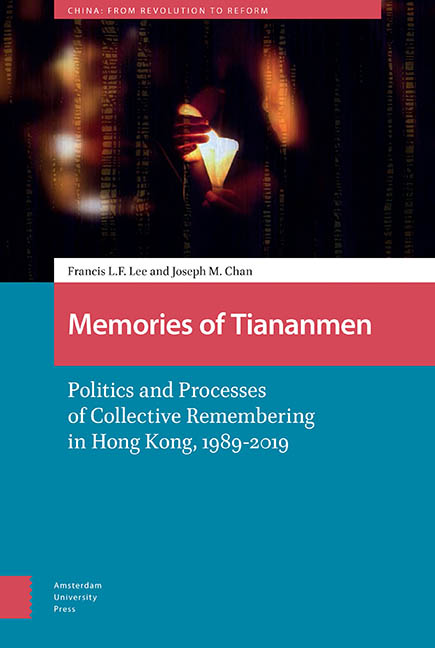Book contents
- Frontmatter
- Contents
- List of Figures and Tables
- Acknowledgments
- List of Abbreviations
- 1 Introduction
- 2 Memory Formation and the Valorization of Commemoration
- 3 Memory Mobilization
- 4 Intergenerational Memory Transmission
- 5 The Struggle for Memory Institutionalization
- 6 The Challenge of Localism and Memory Repair
- 7 Changing Attitudes toward Tiananmen?
- 8 Digital Media and Memory Balkanization
- 9 Conclusion
- Epilogue
- Appendix
- References
- Index
7 - Changing Attitudes toward Tiananmen?
Published online by Cambridge University Press: 16 July 2022
- Frontmatter
- Contents
- List of Figures and Tables
- Acknowledgments
- List of Abbreviations
- 1 Introduction
- 2 Memory Formation and the Valorization of Commemoration
- 3 Memory Mobilization
- 4 Intergenerational Memory Transmission
- 5 The Struggle for Memory Institutionalization
- 6 The Challenge of Localism and Memory Repair
- 7 Changing Attitudes toward Tiananmen?
- 8 Digital Media and Memory Balkanization
- 9 Conclusion
- Epilogue
- Appendix
- References
- Index
Summary
Abstract
Chapter 7 discusses the impact of young people's identity shift on collective remembering of Tiananmen. It examines intergenerational memory transmission in an altered social and political context. It illustrates the extent and characteristics of generational differences on the issue of Tiananmen. In addition, drawing upon sociologist Karl Mannheim's distinction among generation of location, generation in actuality, and generation unit, the chapter examines why and how some young people came to abandon Tiananmen commemoration, yet others were still recruited into the mnemonic community surrounding Tiananmen.
Keywords: national and local identity, generational differences, generation Units
Chapter 6 has reviewed the rise of the localist challenge to Tiananmen commemoration in the 2010s. Indeed, since 2015, the localists have constituted a force to be reckoned with in Hong Kong politics. In addition to their prominence in media and public discourses on various issues, Edward Leung of the Hong Kong Indigenous participated in the by-election of the LegCo in February 2016, and obtained more than 66,000 votes (or more than 15% of the votes). Despite losing the election, the results were taken as surprisingly good for a politically radical candidate without election experience and the support of a strong electoral machine. In the LegCo elections in September 2016, in spite of the government's disqualification of Edward Leung and a few other candidates for their professed support for Hong Kong independence, three localist candidates won in the popular election in the geographical constituencies. Some media organizations grouped the localists together with candidates advocating “democratic self-determination” for Hong Kong's future as a faction. This broader faction obtained six seats and about 19% of the total votes.
However, there was no linear growth of political influence and public support for the localists from 2015 to 2018. The Chinese and Hong Kong governments had adopted a hardline approach to suppress political radicalism. In addition to the highly controversial decision to disqualify candidates who advocated Hong Kong independence from the 2016 LegCo election, the government further disqualified two of the three elected localist legislators – both members of the group Youngspiration – due to their political antics during oath-taking.
- Type
- Chapter
- Information
- Memories of TiananmenPolitics and Processes of Collective Remembering in Hong Kong, 1989–2019, pp. 223 - 252Publisher: Amsterdam University PressPrint publication year: 2021



